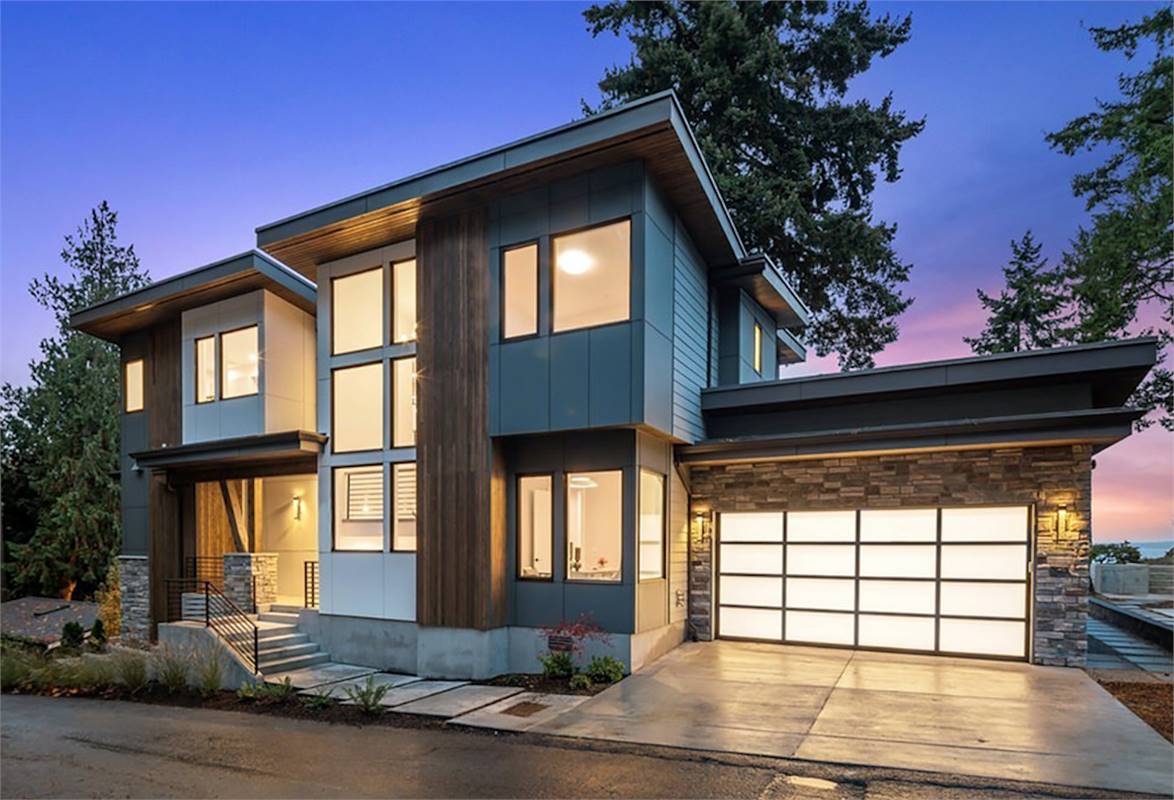
What you require to keep an eye out for in your new rental contract.
Federica
When renting a lodging abroad, the most essential thing you'll require to do is sign the rental contract, a vital file that legally holds you and the proprietor accountable and likewise protects you.
However, the often-complex terms and legal jargon used in lease contracts can be overwhelming. It's also possible that the contract is in a various language when you're renting abroad. This is why it's vital that you never go into a spoken contract with a landlord. Take your time to check out and comprehend exactly what you're in for.
To assist you out, this post will explain about what a rental agreement ought to include. This will help ensure that there're no misunderstandings between you and your landlord. So, let's get begun!
What's in a rental agreement?
The rental agreement is a legal file that includes crucial info regarding what the lodging consists of, your responsibilities and rights, and possible penalties for late payments, early leave, or damage of residential or commercial property.
A rental contract may also be described as a rental arrangement, tenancy agreement, lease arrangement, and so on.
Although rental contracts can rather vary from country to country, many will consist of and require comparable elements:
- Basic info about the renter( s).
- Contact information of the occupant and the property owner.
- Residential or commercial property description, consisting of address, features, and inventory (e.g. furnishings or utilities).
- Rental or agreement duration.
- Rent details, such as security deposit, payment due date, and bank information.
- Your terms, duties, and rights.
- Rules and terms for renting the rental residential or commercial property.
- Clauses for ending or extending the contract.
- Dictionary of terms and lingo
Some tenants, such as students, will likely need a guarantor who'll be lawfully responsible for payments and penalties on behalf of the renter. Some other optional clauses might include rules for having a pet, smoking, or running a freelancing service from your home.
Take a look at sample rental agreements in different languages.
Here're some things you ought to look out for in your rental agreement:
1. Note the kind of rental agreement you're signing
There're 2 kinds of rental contracts. If you're going to be remaining for a specific time with a specific end date, you will usually sign a fixed-period contract. If your plans aren't set in stone, can sign or ask for an indefinite agreement.
Fixed-period rental contracts consist of:
- The end date of the rental agreement.
- No early contract terminations.
- Penalties if the property owner accepts end the agreement early.
Indefinite rental agreements include:
- No end date.
- The contract may be terminated by the landlord if there are legal reasons.
- The time of alert must be kept in mind in your rental arrangement - usually in between 1 and 3 months.
2. Ensure all names are consisted of
This may look like a no-brainer to some, but property managers may inform you that only one name is needed on the lease. However, this can lead to all sorts of issues down the road.
Having one name on the rental agreement means that this individual's name will be on the tax slips and energy costs and that they're entirely responsible for all payments. Plus, if you have a falling out with one of your roommates or they do not pay on time, you 'd have to pay from your pocket as lawfully, just you'll be accountable.
It's likewise most likely that you'll receive backdated tax slips or the last bills for utilities after you move out. Locating or holding old roomies accountable after the contract has actually ended can be tricky. To avoid all this inconvenience, it's finest if all names are on the lease.
3. Understand the rental payment terms
Payments must be plainly defined in the rental arrangement. Always check that the rental contract provides a comprehensive breakdown of the quantity, defines when you need to pay lease, and what the consequences of late payments are.

Some agreements include energies, such as water, electricity, and web. Whereas, others may just include base lease. In some buildings, you might have access to facilities, such as a health club, or might require to pay a yearly service cost on top of lease. So if you're in doubt, clarify these before signing the agreement to understand precisely what you're entitled to.
4. Look out and budget plan for extra costs
You can expect numerous various costs associated with moving. When reserving a spending plan, you may require to include:

Deposits
Many landlords will require that 1 or 2 months of rent be paid as a security deposit. Don't stress, you'll get this back as soon as you vacate, assuming you keep your space or house in the exact same condition as you got it in, disallowing basic wear and tear.
Agency fees
If you decide to book through a company, you'll need to pay differing pricey charges. The reservation charges for housing platforms are usually less expensive.
Online platform fees
If you are utilizing an online platform, you might need to pay to see listings, contact numerous proprietors beyond the free limit, and for any successful bookings. Generally, the charges will be stated in advance so that there aren't any surprises.
To conserve some expenses, you might go with an extensive housing platform, like HousingAnywhere, where you're only charged a booking cost which is 25% of the very first month's lease.
5. Lease contract terms
A rental contract will consist of information about what can and can not be done to the residential or commercial property. For example, if you're renting a home and are wishing to hang art or paint the walls, make sure that your rental arrangement permits this or you won't get your security deposit back.
Then there are typically other basic constraints, such as no cigarette smoking or no animals. If you want any of these, make sure to talk to the landlord before leasing!
6. Take inventory of the lodging
Pay attention to the stock list to know what includes your house. Anything not consisted of in the rental agreement is your obligation to repair or change, not the property managers.
Don't assume that due to the fact that something remains in your house, it's consisted of in the lease as sometimes previous tenants may leave furnishings or appliances. To avoid misconceptions, ask your landlord what is or isn't consisted of as big-ticket products like a cleaning device can trigger a damage in your spending plan!
The greatest pointer we can provide you is to photograph and take a video of the entire room or house that you're renting. As a backup, conserve the images and videos to the cloud and ensure that a datestamp shows up on the file info.
You must likewise send a list of any damages you have actually seen, including visual evidence, to the proprietor on the day that you move in. This will make sure the proprietor can not unnecessarily charge you for damages when you leave.
7. Restrictions on behaviour
Even though you will be making the home or space your new home, there'll be expectations when it pertains to your behaviour. These guidelines are normally specified in the lease arrangement.
Some examples of rules include a no sound policy during particular hours, no family pets or cigarette smoking within your home, no cooking outside the kitchen, etc. If not followed, it can be a cause for expulsion.
8. What to anticipate from your rights and tasks
The rental agreement must detail whatever that is expected of you as a renter, including your duties in the contract. However, it must likewise include your rights as a renter, so that you understand if what you're experiencing is within the premises of your lease contract.

Tenants' rights
- The residential or commercial property should be ready and readily available at the start of the contract.
- Housing must be in a habitable condition.
- The residential or commercial property must be handed over and accepted personally.
- Landlords must make any essential repair work to the home or room.
- Must receive an alert before the landlord goes into the residential or commercial property.
- Must be offered a reason to leave and with sufficient time
Tenants' duties
- Must pay the agreed leasing charges at the needed time.
- Must stick to all guidelines.
- Spend for any damages made to the residential or commercial property.
- Give a valid reason and advance alert to leave the residential or commercial property.
9. Rental arrangement terms and lingo
Finally, here's a handy dictionary of some of the most typical rental terms you'll come across.
Tenant
The tenant is the specific or group of individuals who will be renting the residential or commercial property. The contract ought to consist of the name of all renters residing on the facilities.
Landlord
A landlord is the individual, company or company from which a tenant leases the residential or commercial property. They might likewise handle the residential or commercial property themselves, or offer a representative who will be the occupant's contact for repairs, and so on.
Lettings agency
A letting company can be viewed as an ambassador between the proprietor and the occupant. They can need costs for assisting with documents or for keeping the deposit throughout the rental.
Deposit
The deposit is an established amount of money that the occupant will provide to the landlord, who will either return the cash or utilize it for any damages made to the residential or commercial property.
Inventory
The stock will include a list of whatever that is included within the room or apartment.
Premises
A premise can include an apartment, a home, a parcel or anything else which can be defined as a location.
Notice period
A notification duration is a duration of time that begins after you have actually notified the property owner, or vice versa, of your last day of the tenancy. This provides the landlord sufficient time to discover a brand-new renter to change you. Typically, a notification period needs to be one month and needs to be released before the end of the month.
Termination clause
These terms and conditions determine how the occupant can break the lease or end the rental agreement early.
Maintenance charges

This charge is an additional cost that the renter(s) should pay, along with the lease. For example, if you have a garden, then an upkeep charge to keep the garden in great condition might be required by the tenant.
Sublet

Subletting a lodging indicates that the original tenant is enabling another renter to rent the residential or commercial property for a figured out amount of time, with the initial occupant accountable for all payments. Additionally, subletting is just permitted with the expressed consent of the property owner, and it is unlawful for the rental cost to be greater than the initial quantity set by the proprietor.
A lot enters into discovering the ideal accommodation and guaranteeing that the rental agreement consists of all of the required components. Just make sure to cover all of the essentials, read all of the small print and you'll be able to enjoy your brand-new home in no time at all!








